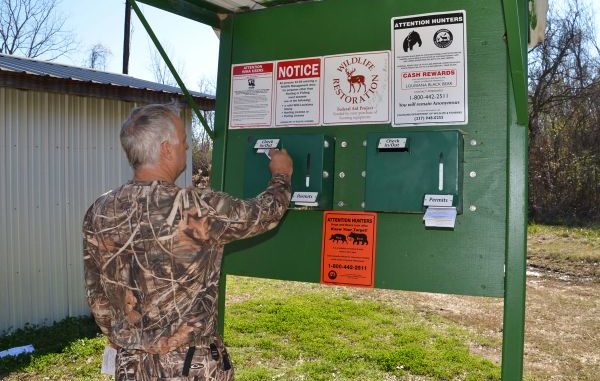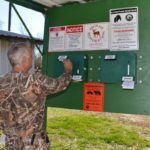
Richard K. Yancey Wildlife Management Area is big, with its 69,806 acres sprawling nearly 30 miles north to south between the Mississippi and Red rivers.
The Louisiana Department of Wildlife and Fisheries owns 57,004 of its acres, with the remaining 12,802 acres being owned by the U.S. Army Corps of Engineers.
Located entirely within Concordia Parish, the WMA was formerly known as two separate but adjacent WMAs: Red River and Three Rivers.
In 2013, the Louisiana Wildlife and Fisheries Commission adopted a resolution to combine the two areas and change the name in honor of Dick Yancey, a prominent biologist who worked 31 years for the LDWF.
Yancey is best known for his efforts to expand the department’s wildlife management area program and as the father of the modern September teal season.
Brad Launey, LDWF biologist supervisor for the agency’s Mississippi Alluvial Valley South Region who has direct oversight over Richard K. Yancey WMA, said the department’s plans include flooding the property’s greentree reservoir every year.
According to Launey, flooding begins in October with water from an electric-pump well. The ultimate goal is to get an average of 2 to 3 feet of water in the reservoir, although water might be as deep as 5 feet in sloughs.
Biologist Johnathan Bordelon, the former supervisor of the WMA and currently the department’s Deer Management Assistance Program coordinator, added that the well is small, so after the low places in the reservoir are flooded by the well, further flooding depends heavily upon rainfall and backwater.
This means flooding is later in dry years than in wet years. That irregularity of flooding actually mimics what would occur naturally.
Flooding every year can actually degrade the trees that grow there. This is particularly true for oak trees, and it’s why greentree reservoirs on some WMAs are not flooded every year.
The woody vegetation of the RKY WMA greentree reservoir leans more to buttonbush (aka “button wood”), water elm, cypress and willow, rather than oaks. These species, he said, are more flood-tolerant than oaks, although not even they will thrive in water.
Primary foods for waterfowl in the greentree reservoir are wild millet, sprangletop and sedges.
“But,” Bordelon added, “invertebrate animals are the big thing in greentrees, especially late in the season. Their populations build up to feed on the flooded leaf litter.”
Launey added that some oaks do occur in the greentree reservoir, primarily in the northeast portion, which he noted is not easy to access.
On a positive note, his mast survey this year showed a bumper crop of acorns.
Greentree reservoirs are important for more than food, Bordelon explained.
Ducks use them for resting because the trees of the reservoir provide refuge from wind and waves.
Both biologists agreed that, while hunting pressure can be significant on opening weekends, pressure overall is not that great compared to other WMAs — especially on weekdays.
“There are no big metropolitan areas nearby,” Bordelon said. “Other places with decent hunting are closer to where those hunters live.”
Bordelon and Launey agreed that green-winged teal, wood ducks, mallards and gadwalls are the primary species harvested. Generally mallards and gadwall are taken later in the season.
A $15 WMA hunting permit must be purchased by those 18 to 59 years old to hunt on any Louisiana WMA. Each hunter must also obtain a WMA self-clearing permit from one of seven self-clearing permit stations.
The check-in portion must be completed and put in a permit box before each day’s activity. The check-out portion must be carried by the person while on the WMA, and then completed and put in a permit box when leaving the WMA.
The only exceptions are for those hunting from a private camp adjacent to the WMA or hunters who are camping on the WMA — these hunters need only to check in once during any 72-hour period.
Hunters seeking more information on RKY WMA may contact Brad Launey at 337-948-0255 or blauney@wlf.la.gov.

